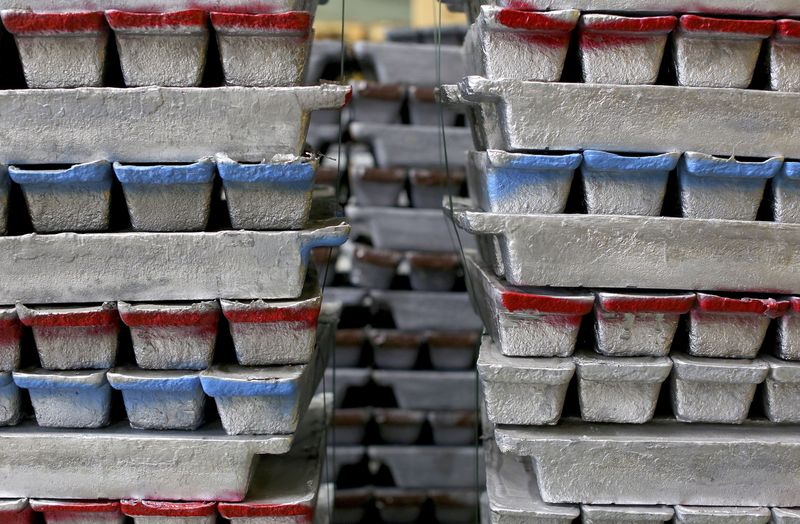By Eric Onstad
LONDON (Reuters) - Lead is expected to outperform other metals over the coming months as cold weather is likely to force consumers to replace auto batteries and supplies tighten, analysts say.
The only base metal to make gains over the last month, lead has already been the best performer on the London Metal Exchange (LME).
"The lead market in terms of fundamentals is reasonably well supported - low levels of stocks, concentrate and metal," analyst Giles Lloyd at consultancy Wood Mackenzie said.
Any major sell-off driven by wider market sentiment could serve as a buying opportunity, he added.
Concerns a global recession will reduce demand have depressed prices of other industrial metals, but the main use of lead is for vehicle batteries.
If they fail, owners have no choice but to replace them and extreme temperatures mean winter in the northern hemisphere tends to be peak season for flat batteries.
"Seventy-eight percent of auto battery demand is replacement, meaning lead demand should be well cushioned against some of the factors driving the lower demand outlook for other base metals," analysts at Macquarie said in a note.
Closures of smelters have also led to less supply of refined metal, with Nyrstar planning to shut its Port Pirie lead smelter in Australia for 55 days and Glencore (OTC:GLNCY) reviewing the sustainability of lead operations at its Portovesme plant in Italy, a source told Reuters.
"It’s crunch time for that now. There's a possibility that we'll see big blocks of supply being knocked out of the market," Tom Price, head of commodities strategy at Liberum, said.
Premiums over the LME price for physical metal have surged in Europe and the United States.
Tight inventories have also supported the market after a decline of more than 40% in warehouses linked to the LME and the Shanghai Futures Exchange. The LME levels are the lowest in 15 years.

Raw materials to produce lead have also been in short supply, including lead residues from energy-intensive zinc smelters that have been closed in response to high power prices.
Symptomatic of the reduced supplies, refiners have lowered the treatment charges that miners pay smelters to process their ore. Wood Mackenzie's Lloyd forecasts they will stay low.